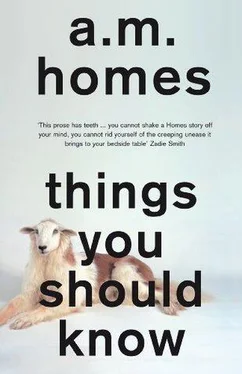They pull into the public lot on Rodeo Drive.
The attendant waves the white car away. “Lot full,” he says.
“It’s okay,” one of the special agents says, putting the OFFICIAL GOVT. BUSINESS placard in the window.
She carries a small purse with almost nothing in it: a lipstick, some old Republican Party pens and tie tacks to pass out as little gifts, and a bottle of liquid hand sanitizer. She is one of the few who, with good reason, regrets gloves having gone out of style — too many clammy hands in the world.
A couple comes up to her on the sidewalk. “We’re here from Terre Haute,” the husband says, snapping a picture of his wife with her.
“We’re such big fans,” the woman says. “How is the President feeling?”
“He’s very strong,” she says.
“We voted for you, twice,” the husband says, holding up two fingers like a peace sign.
“We miss you,” someone calls out.
“God bless,” she says.
“I’ve been hoping you’d come in,” Mr. Holmes in the shoe department of Saks confides. He is her regular salesman. “I’m holding some Ferragamos for you — they’re on sale.” He whispers as though protecting her privacy.
“There’s nothing nicer than new shoes,” she says, sliding into the pumps. She looks at her legs in the half mirror. “At least my ankles are still good,” she says.
“You are very thin,” Mr. Holmes says, shaking his head.
For years she was a six, and then a four, and now she’s a two. After a lifetime of dieting she is just four sticks and a brain, her thin hair teased high, like spun caramel sugar, hard.
“The shoes are down to one-sixty but with my discount I can get them for you at one-thirty-five.”
“You’ve always been good to me.”
He knows enough to have them sent. He knows to put it on account, not to bring her the bag or the paperwork. She doesn’t sign bills of sale or carry bags, and the agents need to keep their hands free.
In Barney’s, she stops at the makeup counter.
“Is that really you?” the salesgirl asks.
“Yes.” She glances into the magnifying mirror. Blown-up, she looks scary, preserved like something dipped in formaldehyde. “I need something for my skin,” she tells the girl.
“I’ve got just the thing for you,” the girl pulls out a cotton ball. “May I?”
She nods. “You may.”
“It goes on light.” The girl dabs her face with the moisturizer. “But is has enough body to fill in any uneven spots. Your skin is lovely, you must have a good regimen.”
“Smoke and mirrors,” she says. “Hollywood magic.”
The agents look away, their eyes, ever vigilant, scan the room. In Los Angeles, the agents dress down. They dress like golf pros — knitted short-sleeved shirts, sweaters, and permanent-press pants. They keep their guns in fanny packs under their sweaters. Their ear buds are clear plastic, like hearing aids.
“That’s lovely,” she says. “I’ll take a jar.”
A woman comes rushing across the store toward her, the agents pull in. “I heard you were here.” The woman moves to kiss her on the cheek, they brush the sides of their faces, their hairdos against each other.
“You look fantastic,” she says, unable to remember the woman’s name — she thinks it might be Maude.
“Of course I do,” the woman says. “I’m like a time machine. Every year, I intend to look five years younger. By the time I die I’ll look like Jon Benet.”
“Could I trouble you for an autograph?” someone interrupts, handing her a piece of paper to sign.
A woman standing off to the side pushes her little girl in the First Lady’s direction. “Go and shake her hand,” she says. “She used to be married to the President of the United States.”
The First Lady, practiced in the art of greeting children, reaches out. The child extends a single finger, touching her like she’s not quite real, like tagging her — You’re it. The little girl touches the former First Lady the way you’d touch something that had cooties, the way you’d touch something just to prove you were brave enough to do it. She touches the former First Lady and then runs.
In Niketown she buys him a pair of aqua socks — they won’t fall off the way his slippers do, and he can wear them everywhere: inside, outside, in the bath, to bed. She buys the aqua socks and when she realizes that no one there knows who she is, she leaves quickly.
“That was nice,” she says when they are back in the car. She has started to enjoy these impromptu excursions more than official functions. At First Lady events, at library luncheons, disease breakfasts, she is under the microscope. People look at her, checking for signs of wear and tear. She keeps up a good front, she has always kept up a good front. She is careful not to be caught off guard.
“Removed from public view”—that’s how they describe him on his Web site. He was removed from public view in 1988, like a statue or a painting. She will not allow him to be embarrassed, humiliated. She will not allow even the closest of their friends to see him like this. They should remember him as he was, not as he is.
Meanwhile, the two of them are in exile, self-imposed, self-preserving.
When she gets home, he is in the backyard with Philip, playing catch with a Nerf football.
“Did you miss me?” she asks.
“Liz Taylor called,” he says. “She’s not well. I couldn’t understand a word of what she said.”
Is he making it up — getting back at her for having gone out for an hour? She turns to Philip. “Did Liz Taylor really call? Do I have to call her back?”
Philip shrugs. “I don’t know.”
“Don’t play games with me, Philip. He’s not a toy, he’s a man. He’s a man,” she repeats. “How am I supposed to know what’s real? How am I supposed to know what the truth is anymore?” She shouts and then storms off to her room.
Philip and the President resume tossing the ball.
“My grip is stronger than it ever was,” he says, squeezing the ball, squishing it, not realizing that it’s not a real football. “I could never have done that as a young man.”
Philip, running for a pass, stumbles over a lounge chair and plunges into the pool.
The President instantly dives in, wrapping his arm around Philip’s neck, pulling. Philip, afraid to fight, afraid he will accidentally drown the President, guides them toward the shallow end. Philip climbs out, pulling the President out of the water, the President’s arm still wrapped around his neck, choking him.
“They call me the Gripper, because I don’t let go.”
“I think it was Gipper, sir. They called you the Gipper, as in ‘win one for the Gipper.’”
“Seventy-eight,” he says.
“What’s seventy-eight?”
“You’re the seventy-eighth person I saved. I used to be a life guard,” he says, and it is entirely true. “Hey, does that count as a bath?”
She is in her dressing room. It started as a walk-in closet and kept expanding. They broke through a wall into one of the children’s bedrooms and then through another into the guest room, and now it is a dressing suite, a queen’s waiting room. The carpet is Wedgwood blue, the walls white with gold trim, calmly patriotic, American royal. It is her hide-away, her fortress, command and control. She’s got a computer, fax, private telephone lines, and a beauty parlor complete with a professional hair dryer. There’s a divan that used to belong to Merv Griffin, photographs of her with everyone — the little lady with the big head standing next to Princess Di, Mikhail Baryshnikov, the Gorbachevs.
In her favorite velour sweat suit, she mounts the contraption — a recumbent bike with built-in screen — she can watch TV, go online, surf the Web, write e-mails, or pedal her way down an animated bucolic country lane.
Читать дальше












